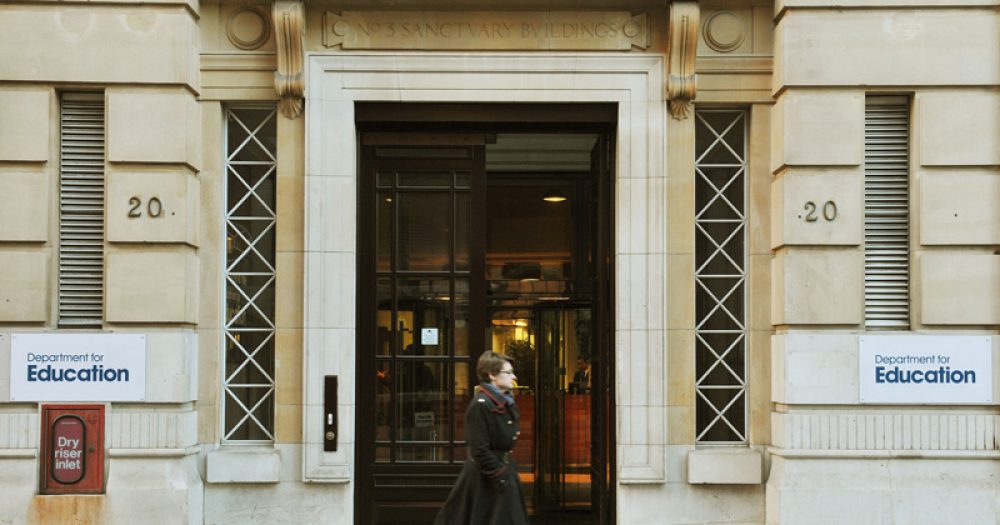Neither political capital or actual capital are backing up today’s FE White Paper, writes Jonathan Simons
In 2009, while working in No 10, I worked with the Department for Business, Innovation and Skills on a White Paper called “Skills for Growth”.
The White Paper committed to government working with local employers to develop “local strategies” to ensure that “skills provision fully reflect the needs of all areas in the region.”
The following year, under the incoming Coalition government, I worked with BIS and DfE jointly on a White Paper called “Skills for Sustainable Growth”. In that, the government suggested a new system of finance and loans for individuals to access training later in life and to build up higher level technical skills.
Stop me if this sounds familiar.
It’s not that today’s analysis is wrong. It’s that none of it is new.
There’s two broad options for policymaking in government, especially in complex areas like skills.
The boring one is taking the existing policy architecture you have and evolving it.
I was perhaps a little unfair in my impression that none of this has changed from a decade ago. The difference between FE loans in 2010, and the shape of a finance system in this White Paper are significant.
The latter is more flexible, and will build on 10 years’ worth of learning about who accesses credit, how it needs to work, how providers need to manage it, and so on. Similarly, a decade ago, the dominant feeling was that it was all about higher skills, and the middle skills were disappearing.
Today’s White Paper is clear that intermediate skills have a vital role to play in the economy.
The second option is to make big, dramatic changes. This can happen when there has genuinely been a paradigm shift in the environment, or when there is a change of political approach towards a sector.
Such an approach is heralded by White Papers and legislation, and the spending of political capital, and actual capital.
We’re arguably in such a moment now. The pandemic has revealed (or perhaps highlighted to those politicians not watching as closely as FE Week readers) the fissures in the skills system and labour market productivity.
Millions of people have sadly lost their jobs and thousands of businesses are shuttered. The labour market of 2025 will be different to the labour market of 2020 on a scale that is very rarely seen within such a short window.
But the pandemic has also meant that the Treasury is extremely reluctant to make long term financial commitments, while the future shape of the economy is unclear.
So what I fear is that today has seen the worst of both worlds.
Because government has committed to publishing this White Paper for over a year now, it has done so – despite the Spending Review in November cutting the ground away from under them.
We’ve got soaring rhetoric. We’ve got big statements about a paradigm shift. But we have neither political capital, nor actual capital, backing it up. We’ve announced big things, before we have big levers to make them work.
Chris Skidmore, the former higher education minister, wrote an excellent piece in Conservative Home in which he gently castigated his fellow politicians for rushing to make quick announcements in an effort to be seen to be doing something.
The saving grace is government has left the political window open
He quotes psychologist and economist Daniel Kahneman about thinking fast, and thinking slow. All too often, Skidmore wrote, the temptation when we can’t answer a difficult question slowly is to answer a different, easier question quickly.
The saving grace is government has left the political window open. In the next few months, with a fair wind and a successful vaccine rollout, we’ll know more about the medium-term economic impact.
We’ll know more about what is signal and what is noise in the labour market. We may also have a change in personnel at the top which could lend this agenda greater political capital.
So the mission for all of those who work in FE and skills policy is clear. We must see today not as the end, but the end of the beginning.
The task is to continue to press government in the run up to this Autumn’s Comprehensive Spending Review. Only then will the reality of change and the investment of tomorrow meet the political rhetoric of today.

















Well its been a starnge couple of days…first Nick Gibb allegedly has had an epiphany about the use of technology (but only for teachers/ teaching/instruction and not for learning/learners.
Now I have to agree with Jonathan Simons …….
The planets have moved surely